Amplifier supports artists and communities in creative social activism
Over the coming weeks, Creative Exchange will be highlighting artists responding practically to the COVID-19 pandemic with creative solutions to this unprecedented problem. If you know of an artist or organization doing creative work in direct response to this crisis, drop us a line at creativeexchange@springboardforthearts.org. You can also view all of our COVID-19-related coverage here.
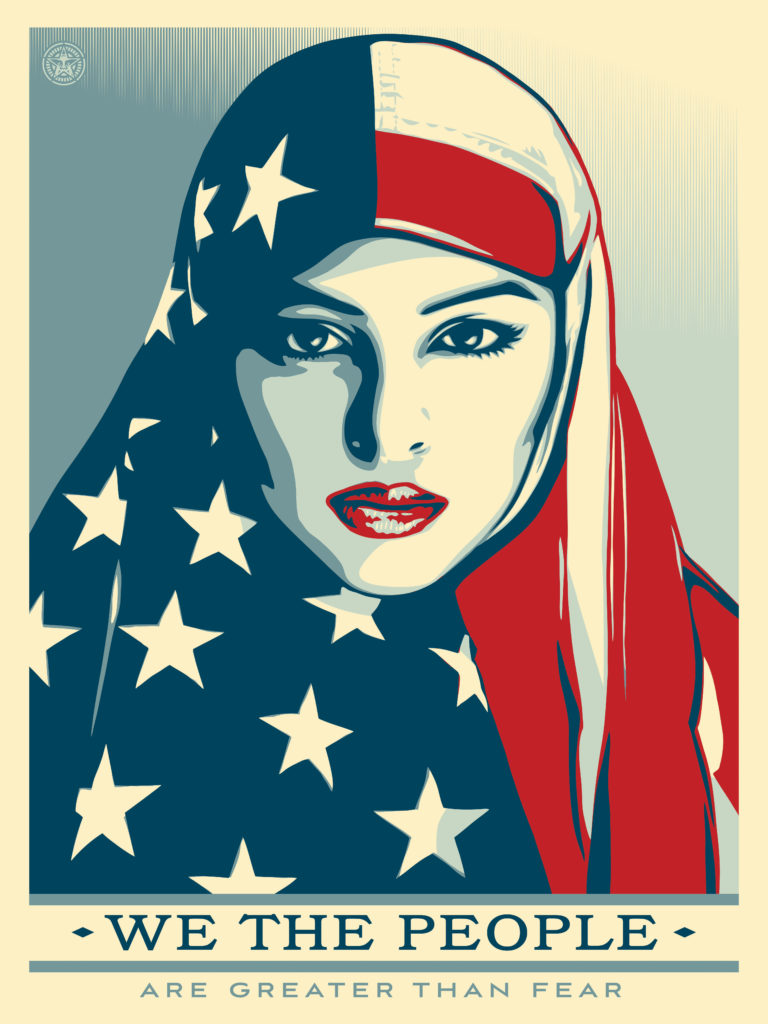
Amplifier is a nonprofit organization founded by National Geographic photographer Aaron Huey in 2015. He was interested in exploring how he could take the stories he had been capturing with his camera and bring them out into the street, democratizing the work and making it more accessible to the public outside of the glossy pages of a prestige print magazine.
Six months after Amplifier officially formed, they launched We the People, a campaign dedicated to igniting national dialogue about American identity and values and combatting the rising influence of nationalism, bigotry, and intolerance. This campaign catapulted the nonprofit onto the global stage, turning it from what Executive Director Cleo Barnett called “a backyard operation” into an international phenomenon almost overnight. Powerful images from the campaign include a Muslim woman wearing an American flag as a hijab (designed by Shepard Fairey based on a photograph by Ridwan Adhami) and a depiction of Helen Red Feather of the Lakota tribe with her fist raised in the air during the Dakota Access Pipeline protests at Standing Rock reservation in 2016 (designed by Ernesto Yerena based on a photograph by Ayşe Gürsöz).
Other campaigns they’ve produced since their first in 2016 have supported climate change action, March for Our Lives (a student-led movement in support of gun legislation to prevent gun violence in America), and a partnership with the Women’s March for a national voter registration drive and traveling art exhibition. All of the images produced as part of their campaigns are available on their website for free high-resolution download, and Amplifier encourages people to download, print, and share them. They also make free printed posters available at various locations throughout the country during active campaigns. This is all in service of their mission to make this work as accessible as possible for as many people as possible, and to also be a galvanizing force in social activism through creative expression.
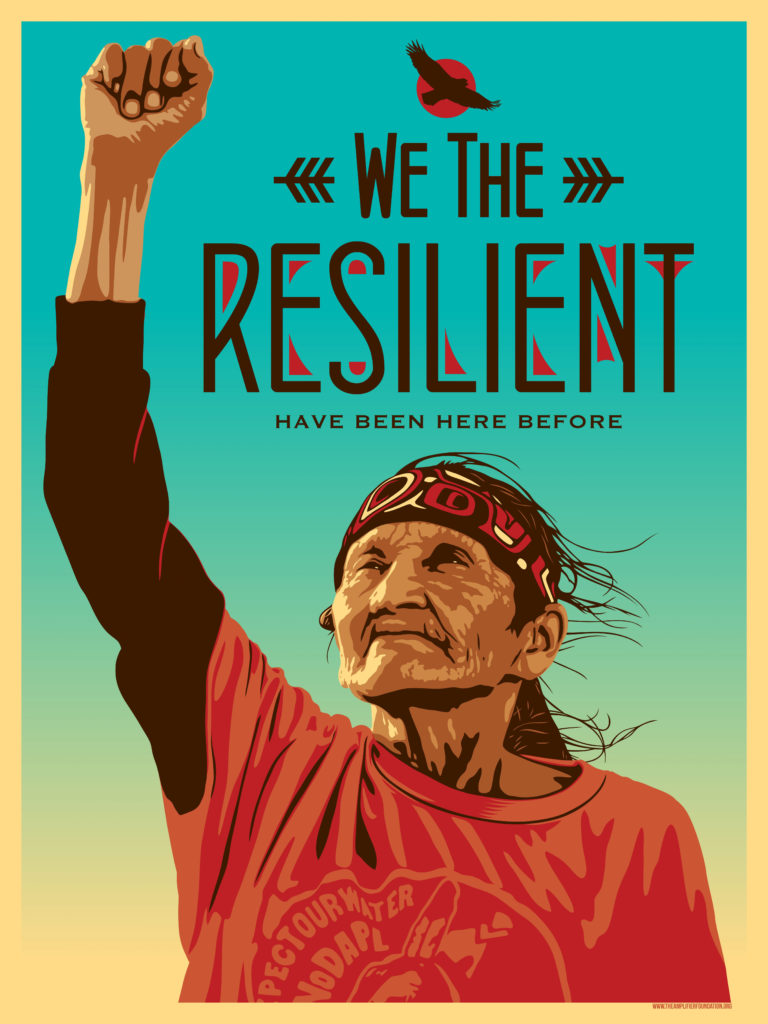
“We build community campaigns for the most important grassroots movements of our time,” Barnett explains. That means nurturing the creative community—”We always pay artists really well,” she says—and also developing distribution strategies to get the work into as many hands as possible.
They see themselves as providing the backend support to the artists and activists at the front end. All of the creative direction for the artwork comes from the communities most directly impacted by the issue area; Amplifier then provides the platform and the community distribution model.
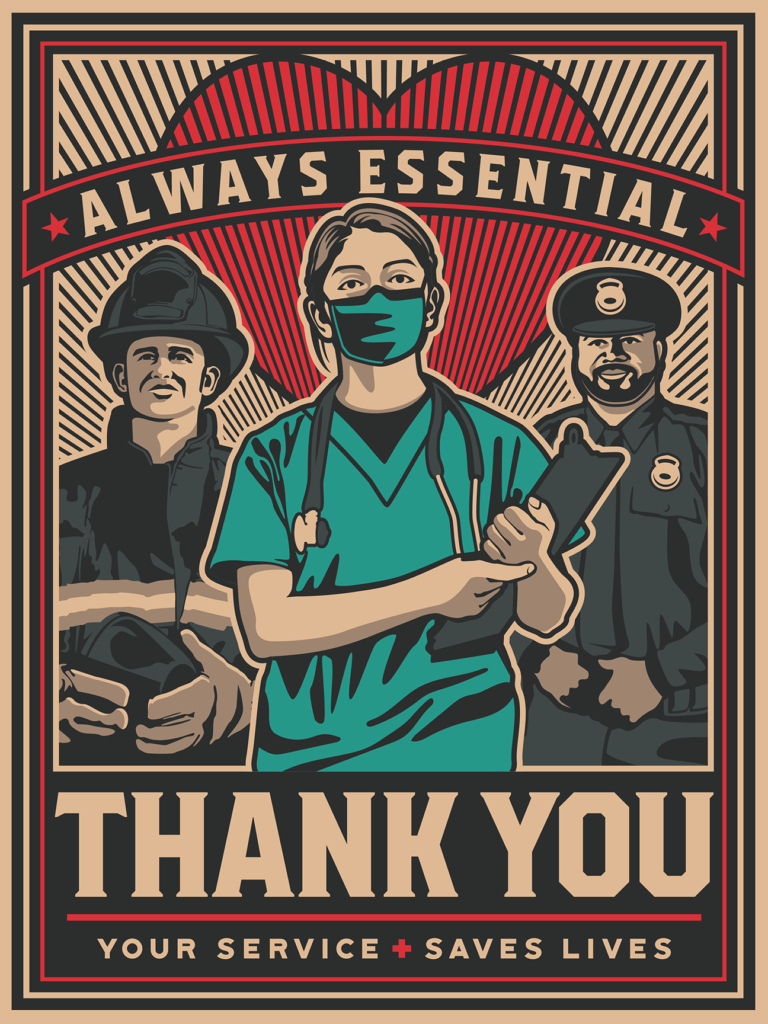
Currently, in response to the COVID-19 pandemic, Amplifier is supporting an ongoing global open call for art for symbols promoting mental health, well-being, and social change work during these unprecedented times. Any artist can submit their artwork to the site. Each week, the Amplifier team reviews every single team and selects their top 100, which are posted on the website for public voting. Members of the curatorial team each then selects their favorite 20 out of those—public voting moves images up to higher placement on the site to better ensure they are seen by the curatorial team and by more people—and then the top five that received unanimous votes from the curatorial team are chosen to receive the cash award.
This emergency campaign launched in the beginning of April with the initial intent of paying five artists $1,000 each week. Thanks to additional funding, they were able to pay 16 artists $1,000 each by the end of the second week.
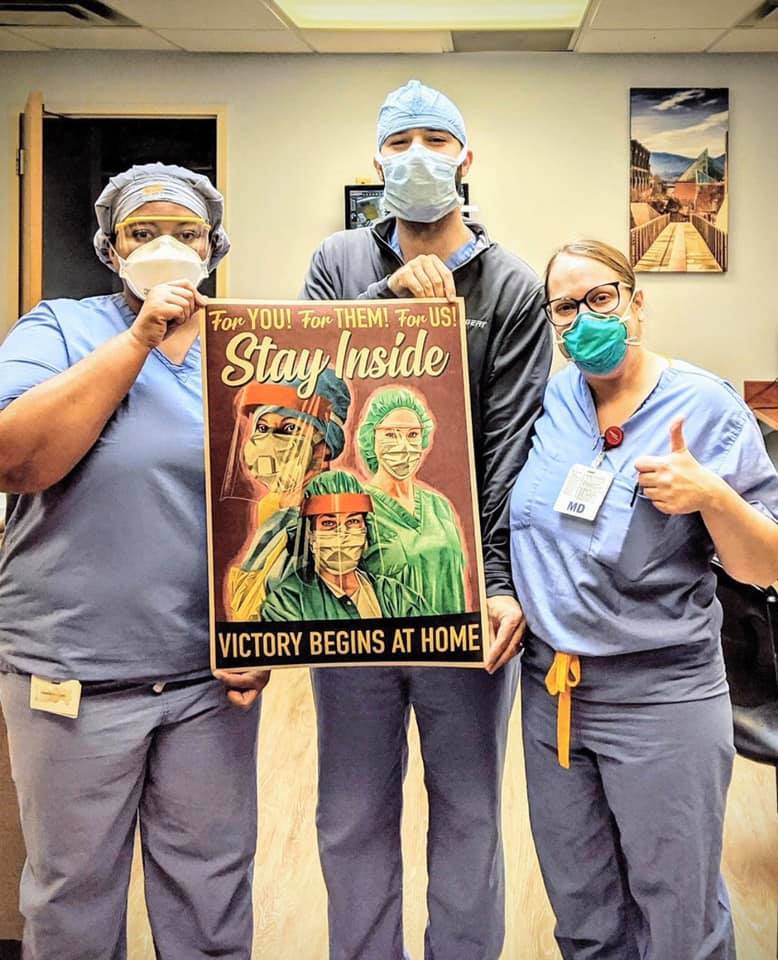
“This open call is a very intentional platform we built to democratize the process of our artwork commissions,” Barnett says, which previously had been done more through direct commissions. This is their first global campaign, and as a “small but nimble team,” they were able to launch it within 72 hours of having the idea. Barnett says artists are free to submit as many pieces as they’d like as often as they’d like; even if something isn’t chosen one week, it still could be in later weeks. Over the first three weeks, they’ve already received over 4,500 submissions.
“Artists are at the core of our work. We want to support and nurture them during this time,” Barnett says. “Our mission is to get money in artists’ hands.”
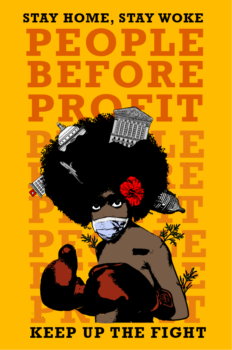
Amplifier has been actively raising funds to support this campaign, with 100 percent of the proceeds going to artists, and anything in excess of their initial fundraising goals has allowed the campaign to award more artists. This campaign ends May 8; after that, they will then focus their efforts on new campaigns, including an open call around reimagining our economy as one that works for all people, as well as a campaign focused on the November presidential election.
Additionally, they’re also currently running a second rapid response campaign sending free artwork and digital teaching tools to adults in the U.S. who are now facilitating at-home learning. Parents and caregivers can register for that here. Over 3,000 parents signed up for this program in the first 72 hours, and they’ve already sent thousands of art packs to homes. This emergency campaign will be ongoing.
In the meantime, Amplifier has begun rolling out distribution strategies around this COVID-19 emergency campaign, with large-scale digital projections of selected images occurring in New York and London so far. They plan on public art installations in their home city of Seattle, as well as printing poster packs to be delivered to hospitals around the country. The UN has even approached them to put some of the artwork on stamps.
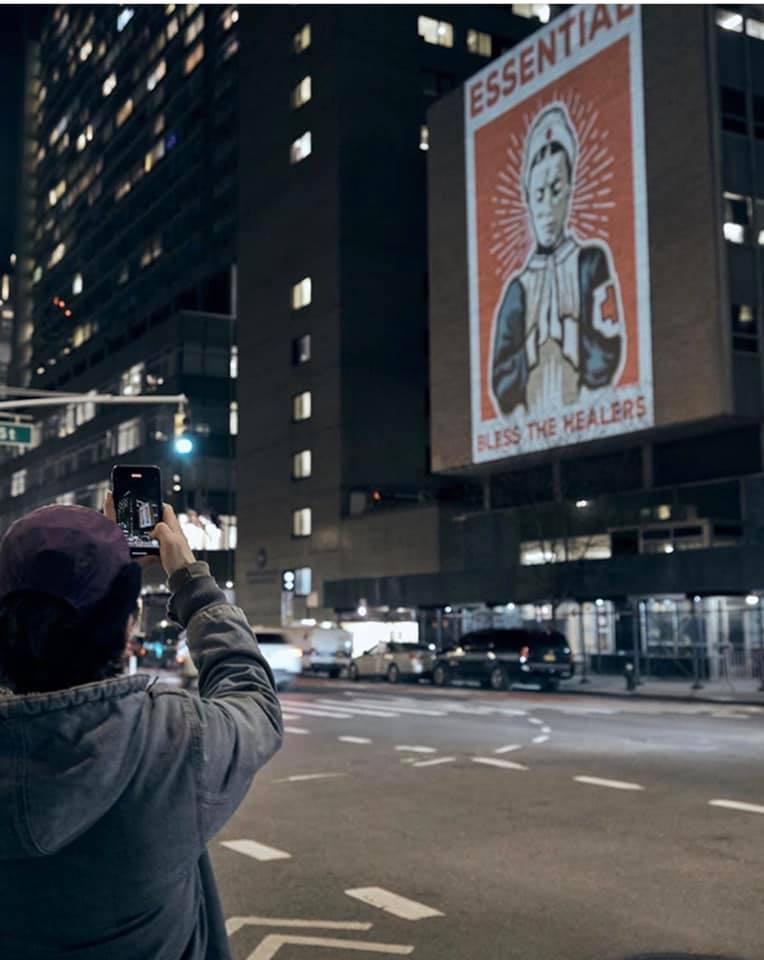
Through all of this, Barnett says, Amplifier’s mission as an organization remains what it has been from the beginning, only now with greater urgency: “Our hope is that we make artwork that saves people’s lives and get money into the hands of artists as quickly as possible.”
Lead image by Thomas Wimberly.
